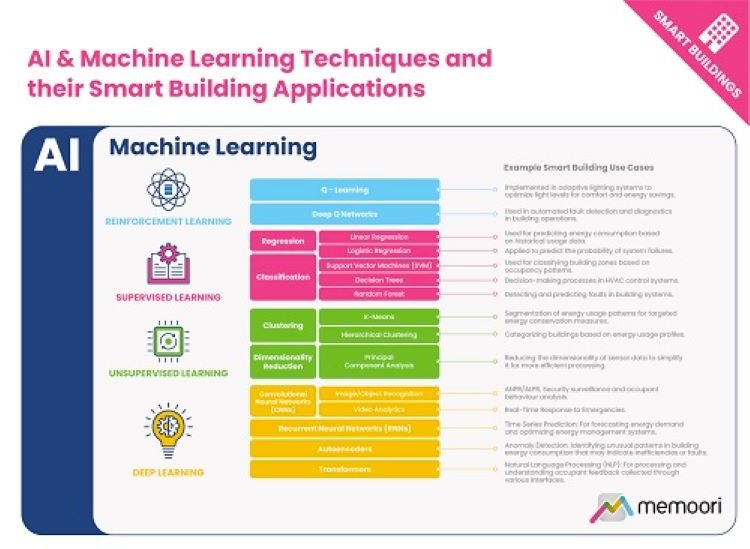
Smart Building AI Market Estimated To Reach $6.48 Billion
Research company, Memoori, has published a new 2024 study that explores the growing role of artificial intelligence within the commercial buildings market.
The report explores where we are on the journey towards “truly cognitive buildings.” According to Memoori, today’s commercial buildings technology is transitioning away from rules-based analytics towards AI predictive machine learning models but adoption remains at modest levels. Real-world deployments remain narrow in scope driven by the more well-understood use cases around energy optimisation, space utilisation, and security.
Challenges inhibiting AI adoption
Various elements also exist that are holding back the widespread adoption of AI. Challenges inhibiting widespread AI adoption span technical integration with legacy systems, a general lack of the necessary specialist skills and wider education, and a culture within commercial real estate that is slow to embrace the new processes essential to leveraging AI solutions effectively.
In the medium term, the research suggests that AI in the Commercial Buildings Market will grow at a 25.5% CAGR through 2028 to $6.48 billion, as this sector begins to embrace the emerging technology and closes the gap with more AI-centric industries.
Through extensive analysis, Memoori has mapped out numerous distinct AI use cases spanning several key domains where solutions are actively being developed and commercialised for smart buildings. These encompass a diverse range of potential benefits from driving sustainability and energy efficiency to security enhancements and more tailored occupant experiences.
AI Arms Race
The research also finds that billions of dollars are being invested by Big Tech in a so called “AI Arms Race”. This is driving rapid innovation which will be of benefit to all industries. For example, Research from ARK Invest reveals that the cost of training deep learning models is decreasing at a rate 50 times faster than Moore’s Law.
Accoring to Memoori, the commercial buildings industry stands on the cusp of significant advancements, driven by AI’s potential to enhance operational efficiencies, improve occupant experiences, and contribute to sustainability goals. As AI technologies become more accessible, commercial real estate stakeholders must navigate these developments strategically to harness AI’s full potential.
